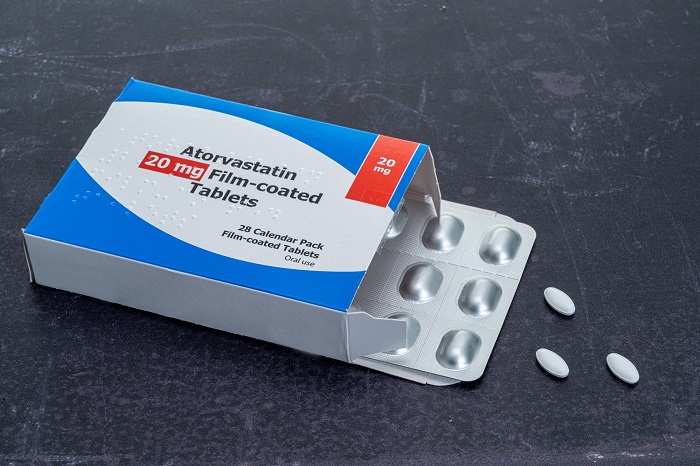Office of Research & Development |
 |


Omega-3 fatty acids are among the most popular dietary supplements on the market today. But their health benefits have been controversial, mainly because of inconsistent research results. (Photo: ©iStock/BrianAJackson)
March 27, 2019
By Mike Richman
VA Research Communications
"It's not recommended that the general public use fish oil supplements, which haven’t been shown to help prevent heart attacks or strokes. Consumption of fish should suffice."
Many studies have shown that eating fatty fish as part of a healthy, balanced diet keeps your heart strong and helps lower the risk of heart disease, the leading cause of death in the United States. Fatty fish, such as salmon, mackerel, and tuna, are good sources for omega-3 fatty acids, which lower elevated levels of triglycerides, a major form of fat in the body. Higher levels of triglycerides in the blood can mean a greater risk of heart attack or stroke.
The cardio and other reputed health benefits of omega-3s—which include curbing stiffness and joint pain and preventing dementia—have prompted millions of Americans to buy them as fish oil and algae supplements. Omega-3 fatty acids are among the most popular dietary supplements on the market today. But the health benefits of these supplements have long been controversial, mainly because of inconsistent research results.
Are there prescription forms of omega-3s that are any better than the supplements available online and in stores? The most common omega-3s that are prescribed to reduce the risk of heart disease are eicosapentaenoic acid (EPA) and docosahexaenoic acid (DHA), both of which are in fish and fish oils, as well as alpha-linoleic acid (ALA), which is in certain nuts, seeds, and vegetables.

VA Study Documents Health Risks for Burn Pit Exposures

VA center training the next generation of researchers in blood clots and inflammation

Could cholesterol medicine reduce dementia risk in seniors?

Million Veteran Program director speaks at international forum
Dr. Salim Virani, a staff cardiologist at the Michael E. DeBakey VA Medical Center in Houston, hopes that omega-3s, especially those that are prescribed, can potentially produce major cardio benefits. He recently co-authored a review that summarized the findings and clinical implications from a series of omega-3 trials. The review appeared online in the journal Current Atherosclerosis Reports in January 2019.
Virani and his colleagues devoted most of the review to a study on a fish oil that is available only by prescription: icosapent ethyl. Researchers on the REDUCE-IT study found that icosapent ethyl, which is highly purified derivative of EPA, was tied to a lower risk of heart disease in patients with preexisting diabetes or cardiovascular disease, plus elevated triglyceride levels. The trial included more than 8,000 participants. During the five-year follow-up, 17 percent of the patients taking four grams a day of icosapent ethyl experienced a heart attack or stroke. Twenty-two percent of the patients on the placebo, which was mineral oil, had heart disease or stroke.
“Current data suggest that higher dosages of pure [EPA prescriptions] provide additional benefit” in the reduction of heart disease, Virani and his colleagues wrote. “Data from the randomized controlled trial REDUCE-IT, when viewed within the context of other trials, such as JELIS, add to the growing body of evidence on the use of omega-3 fatty acid therapies in the treatment of [heart disease].
In his career, Virani has researched heart disease prevention through the use of lifestyle changes and treatments related to lipid disorders. The latter are high blood levels of triglycerides or LDL cholesterol, which is bad cholesterol, or both. Elevated concentrations of LDL can also lead to heart disease.
Virani, who is also an associate professor at the Baylor College of Medicine in in Texas, discussed his work with VA Research Currents.
What should the general public know about consuming omega-3 fatty acids in a diet and via supplements for cardiovascular health?
Major guidelines from large academic societies, including the American Heart Association and the American College of Cardiology, recommend a diet that includes vegetables, legumes, fruits, whole grains, and fish to reduce the risk of heart disease. Fatty fish, such as salmon and mackerel, are good sources of omega-3 fatty acids. As such, it’s not recommended that the general public use fish oil supplements, which haven’t been shown to help prevent heart attacks or strokes. Consumption of fish should suffice. The benefits from naturally produced omega-3s have been seen in patients with elevated triglycerides who were given prescription fish oil. We recommend that patients and the general public first consult with their health care providers to see if they are candidates for those therapies, rather than consume over-the-counter fish-oil tablets.
What is it about icosapent ethyl that makes it more effective in reducing heart disease than an over-the-counter supplement, and does it have major side effects?
Some scientists think that icosapent ethyl may have a special membrane stabilizing effect that other prescribed fish oils don’t. Some people think that when you lower triglycerides with some other fish oils, LDL cholesterol levels may go up. But LDL cholesterol generally doesn’t rise when you prescribe EPA, like the derivative used in the REDUCE-IT trial. Experts believe that that may be the reason, but it’s not something that’s proven. In terms of side effects, there was a small risk of increased bleeding among the patients in REDUCE-IT, as well as an increase in an irregular heartbeat called atrial fibrillation, or AFib. But there was a much greater reduction in heart attacks and strokes, compared with an increase in these side effects.
Your review says, “Given the different formulations, dosages, and patient populations studied, cardiovascular outcome trials of omega-3 fatty acids have provided valuable insight into the use of these agents in cardioprotection.” What was the primary methodology for these studies?
The studies we reviewed were randomized controlled trials. Patients with a history of diabetes or cardiovascular diseases, such as heart attack or stroke, received prescription fish oil, compared with a placebo. The fish oil used was different in the trials. It’s also important to note that in the more contemporary trials, such as REDUCE-IT and JELIS, these patients were already on other drugs—most importantly, statins—that are very important in reducing the risk of heart attack or stroke. The important message here is that in the right patient, omega-3 prescription fish oil may be helpful when taken, in addition to statin therapy. Patients should not think that omega-3s can replace their other cardiac medications. They should continue taking all other cardiac drugs, including statin therapy, even when they are prescribed a fish oil by their health care provider. If the medication needs to be adjusted, their health care provider will let them know.
Is there new information that helps resolve the debate over whether omega-3s indeed assist in heart function?
Most of the studies related to cardiac function have been small studies. Practice changing studies are generally large studies performed using a randomized trial design. For omega-3s, some of these large randomized trials have been completed, and some important ones are still ongoing. The ongoing trials will provide definitive evidence of which patients derive the most benefit from omega-3s and which types of omega-3s should be used. There is no current evidence to support widespread use of omega-3s by the general public for cardiovascular benefit.
Of the three main omega 3s–EPA, DHA, and ALA–which one stands out as having the greatest cardiovascular benefits, and will they be prescribed in greater number in the coming years?
They are all important. ALA is an essential fatty acid, so it must be consumed through dietary sources, mostly via nuts, vegetable oils, flax seeds, and leafy vegetables. EPA and DHA are largely derived from the diet, mainly from oily fish or fish oil supplements, although they can also be produced through ALA.
An increase in prescriptions in the coming years will depend on the results of an ongoing study called the STRENGTH trial. It’s going to be as large as the REDUCE-IT study. Researchers on the STRENGTH trial are examining whether four grams daily of a lipid-controlling drug that contains both EPA and DHA reduces the risk of heart disease in statin-treated patients with high levels of triglycerides and low levels of HDL cholesterol, which is known as good cholesterol. The results for STRENGTH should be out in the next two to three years. If the results are positive, then the confidence doctors have in prescribing omega-3s will rise. If you have two studies that come back positive, that definitely improves your degree of certainty that a therapy will be beneficial. The cost of this is a big issue, as well. We discussed that in one of our other manuscripts that was just published in the journal Circulation of the American Heart Association. We provided the cost estimates in VA of prescribing the form of EPA used in the REDUCE-IT study to prevent heart disease or diabetes in patients with high levels of triglycerides.
VA Research Currents archives || Sign up for VA Research updates